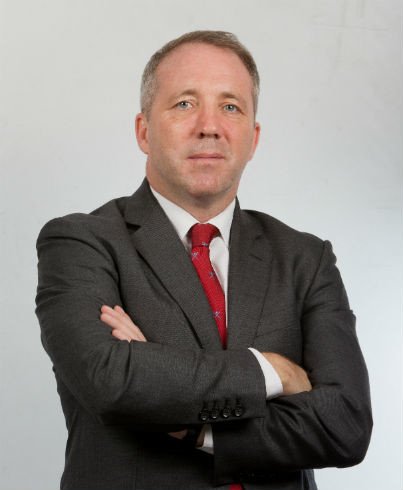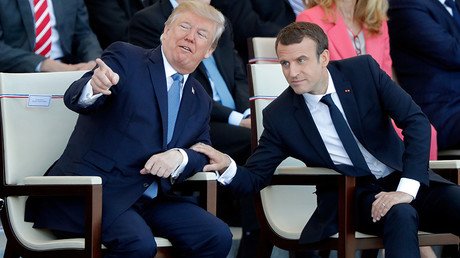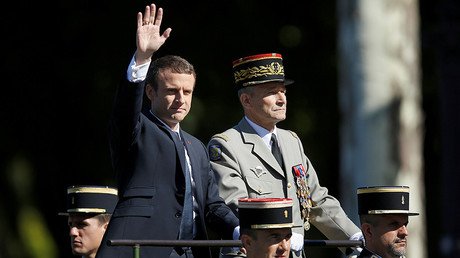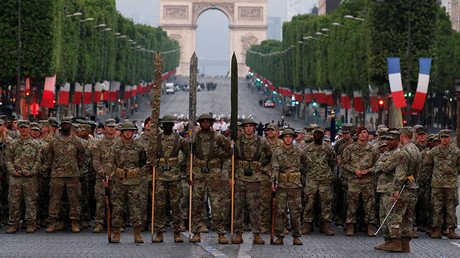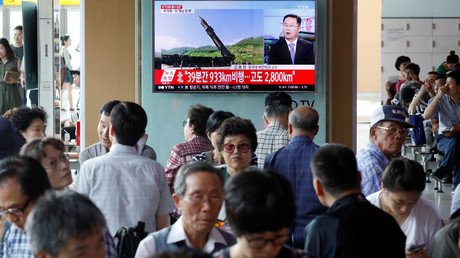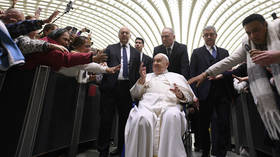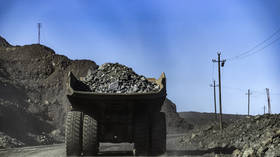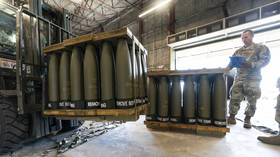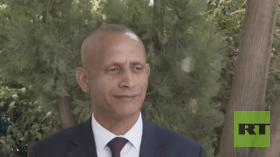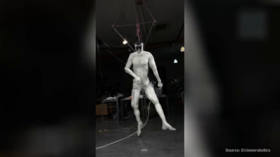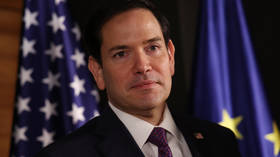Trump’s parade dreams expose deep schism in US over military affairs
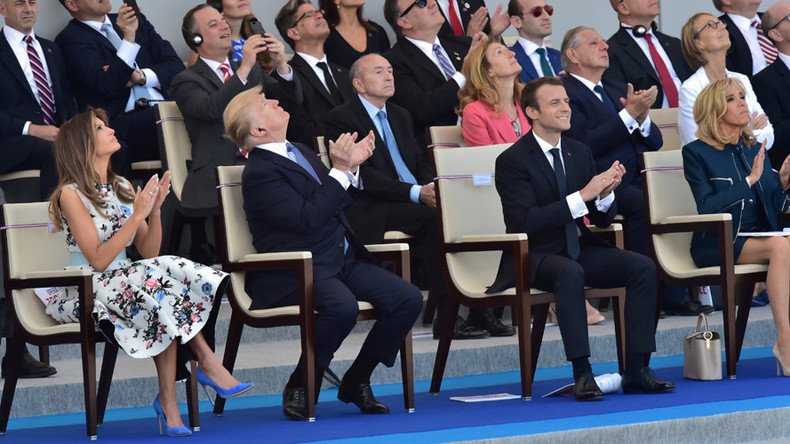
Many in the US like to see their country as a peaceful, munificent global arbiter which will only take up arms when roused beyond reasonable restraint. The facts, however, contradict this.
The US is the foremost military power on earth. Every method of calculating military strength shows the 'Land of the Free' coming out on top.
As we’ve seen when the US military rolls into, say, a dusty Iraqi town, divisions of infantrymen don’t matter. It’s hardware that counts now.
America has a military budget of about $600 billion. China’s budget, is enormous too, only $216 billion. Russia spends $49 billion, which means the US spends 12 times more on defense a year than Russia.
Right now 200,000 American military personnel are deployed in 177 countries around the world. Sixteen years after the 9/11 terrorist attacks in New York and Washington, which were the catalyst for a US military surge, its troops remain in Afghanistan and Iraq.
US foreign military escapades have poisoned international affairs since 1945.
President Donald Trump’s administration is dominated by former army generals.
Still, this false image of a peace-loving people persists. This is because the opinion formers in the arts and entertainment industries, the universities and the media are, like many Western countries, dominated by leftist, liberal elites who seek to form an image (of themselves and others) that diverges from the facts.
The historian Niall Ferguson argues that succeeding generations of American academics and the university educated classes remain opposed to militarism because of the traumas of Vietnam.
Whatever the explanation, there is a deep psychological and ideological split in the US over militarism. In practice, the militarists have always been dominant.
Into this toxic struggle stepped President Donald Trump who found himself, as one of the many perks of office, guest of honor at the Bastille Day parade, last 14 July in Paris.
On the Avenue des Champs-Élysées, his raccoon-like eyes got wider and wider, like a child on Christmas morning, the toys of his dreams were produced before him. France, a country with an ancient militarist tradition and with a history of warfare far longer and more violent than the US, likes a good military parade.
The Champs-Élysées witnessed everything from polished and feathered mounted troops from a more glorious French military era to gleaming missiles as they paraded before the French president and his guests. This was also the first Bastille Day for President Emmanuel Macron.
The ironic symbolism was to be seen everywhere in central Paris that day.
Macron, that liberal hero, rode down the Avenue in an open-topped, camouflaged armored car standing alongside Army Chief of Staff Pierre de Villiers.
Four days later the famously straight-talking de Villiers was gone, after an explosive falling out with Macron over a €850 million cut to the military budget.
De Villiers told a parliamentary committee that the government should not “f*ck with me” on this. They did, and he resigned.
Further back in the parade, surely fuming that he only got to ride in an armor-plated limousine and not a tank, was Donald Trump. Utterly oblivious to the decreasing trendiness of military parades in France and elsewhere Trump was cooking up one of his many contrarian ideas.
This, after all, was a parade that also commemorated the 100th anniversary of USA’s entry into the European arena of battle and it's assuming a role as a participant in global conflagrations.
One hundred years ago this year US troops arrived in France to help the allies defeat Germany in World War I. It was an avowed pacifist and former academic Woodrow Wilson who had been forced by moral and military pressure to send them.
Despite the fact that Macron’s discomfort with the show of military might may have even contributed to a hardening of his stance on military spending Trump plowed on.
At a meeting with Macron in New York last week at the United Nations annual get-together Trump made an announcement.
Of his experiences at Bastille Day Trump said: “It was a tremendous thing for France and for the spirit of France.”
“Because of what I witnessed we may do something like that on July Fourth in Washington down Pennsylvania Avenue. I don’t know if we’ll have to try to top it … but it was a beautiful thing to see.”
Cue gasps of international horror and probably fainting spells on university campuses and in newsrooms all over the US.
Trump wants his own military parade after being wowed by France's https://t.co/zbDNGwVfvYpic.twitter.com/leCE9vchg8
— POLITICO (@politico) September 18, 2017
Under the umbrella of that self-righteous organization the UN, and alongside a man who is at loggerheads with his own military Trump was praising something that is seen by his liberal foes as an anachronism from a bygone age.
Trump has spoken about bringing back military parades before. And there was military hardware rolled out at John F Kennedy’s inauguration but as the Cold War progressed the ardor for displaying the might also cooled.
The idea of a reintroduction was sniffed at in the Trump opposing New York Times, and they quoted a presidential historian pointing out that it was not a good thing.
The other two top three military powers, Russia and China, have military parades where they show off their military hardware. And a historic inclination to distinguish the US from comparisons with these rivals discourages parades in Washington.
Would many of Trump’s supporters disagree with what Trump said to Macron last week?
“We’re actually thinking about that … having a really great parade to show our military strength,” Trump said.
If you’re getting into to public saber-rattling with the likes of Iran and North Korea (which loves a spectacular military parade too), you might be better off to display the sabers.
If you drive through the mid-West of the US, as I have many times, you will see something that you read of, and may think is a myth. Many, many homes have a Stars and Stripes US flag flying proudly on a flagpole in their front yards. So often you will look at a lonely homestead, surrounded by cornfields in rural Iowa and there is a flag fluttering. This display of patriotism is often linked to respect for US military achievements.
Military veterans are revered in the US. It is proud of its military, and 63 million of the American electorate voted for Donald Trump. So his views must be taken seriously.
His repeated threats to North Korea, though his bellicose language may offend the diplomatic classes and may bring global conflict, are supported in the US.
A Gallup poll found that 58 percent said they would favor military action against North Korea if the US can’t accomplish its goals by more peaceful means first.
In all the US’s foreign military adventures this has been the tack, try peaceful means first and then attack. Of course, the instability on the Korean peninsula emanates from the US activities there in the early 1950s.
Indeed, had President Harry Truman bowed to General Douglas MacArthur’s pressure to expand the Korean War we might not be where we are today. Or we may have had a nuclear war. MacArthur was sacked, but this historic clash of president and general shows the schism on military affairs has deep roots.
Trump has never disguised his enthusiasm for a military parade in Washington. Before his inauguration, he asked for the somber event to be adorned with a show of military strength.
Trump has long admired maverick, but historically popular US generals like MacArthur and General George Patton.
This is Trump’s form. The US lives with an essential contradiction. The East Coast liberal elites are embarrassed about the real global image of the United States that it is a massive, aggressive, interventionist military power.
The educated classes have Vietnam seared on the consciousness. In that South East Asian conflict, the US destroyed its reputation both for fair dealing and military competence forever.
Yet Trump doesn’t care a hoot about international opinion. He cares about what he likes, and he (usually) represents his supporters. His supporters don’t want conflict but they, like he, are aware of what they have to show off.
The military budget pays for 1.4 million active military personnel, 8,848 tanks, 13,982 aircraft and 72 submarines. The USA has more than 4,000 nuclear weapons.
The US elite may wring their hands, and international media may snigger, but Trump may well be articulating what the average American is thinking: ‘If you have it, flaunt it.'
The statements, views and opinions expressed in this column are solely those of the author and do not necessarily represent those of RT.
